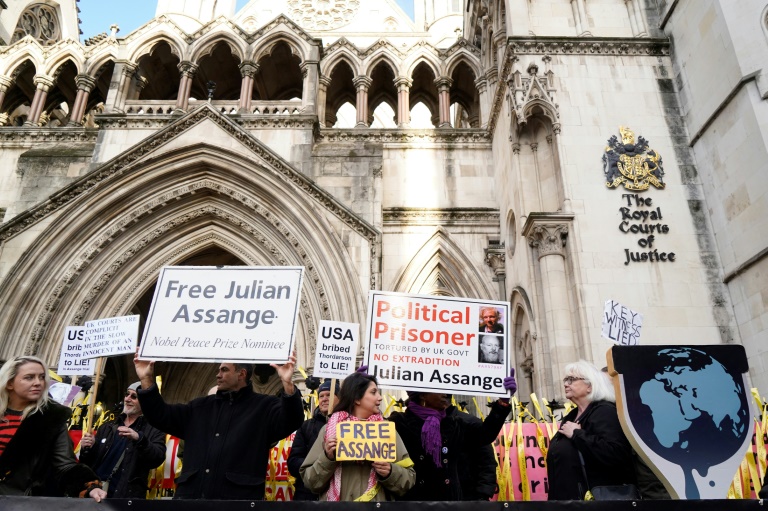The US government on Friday won an appeal against a London court ruling that had blocked the extradition of WikiLeaks founder Julian Assange from Britain.
Washington challenged a decision made in January that the 50-year-old Australian would be a suicide risk if he was transferred to the US justice system.
The US government wants Assange to face trial for WikiLeaks’ publication in 2010 of classified military documents relating to the US wars in Afghanistan and Iraq.
A two-day hearing was held in October where US lawyers argued that the original judge had not given sufficient weight to other expert testimony about his mental state.
They also sought to assure the court that he would not be held in punishing isolation at a federal supermax prison, and would receive appropriate treatment.
Two appeal judges at the High Court in London accepted US assurances that Assange would not face the strictest measures before any trial or after conviction.
Such assurances were “solemn undertakings offered by one government to another”, judge Timothy Holroyde told the court.
He said Assange would “receive appropriate clinical and psychological treatment” in the United States and Washington would agree to transfer him to Australia if he is convicted.
“The court rejected various criticisms of those assurances which were argued on Mr Assange’s behalf and was satisfied that the assurances were sufficient to meet the concerns which led to the district judge’s decision,” he added.
The judges ordered that the case be returned to Westminster Magistrates Court in central London with a direction it be sent to Home Secretary Priti Patel for a final decision on whether Assange should be extradited.
But Assange’s partner, Stella Moris, said they would “appeal this decision at the earliest possible moment”, calling it a “grave miscarriage of justice”.
“How can if be fair, how can it be right, how can it be possible, to extradite Julian to the very country which plotted to kill him?” she said, referring to claims about a CIA plan under the Trump administration.
– Media freedom –
The long-running case has become a cause celebre for free speech, with Assange’s supporters arguing WikiLeaks has the same rights as other media to publish secret material in the public interest.
Speaking outside court, Moris said Britain was acting on behalf of a foreign power, calling the case a “vindictive prosecution against a journalist” for what he published.
“This goes to the fundamentals of press freedom and democracy,” she said, accusing Britain of acting on behalf of a foreign power.
Rights monitor Amnesty International also questioned US assurances about how Assange would be treated if extradited to face trial, calling them “inherently unreliable”.
Pro-Assange supporters gathered outside the court, waving placards and demanding his immediate release from a high-security jail in the British capital.
WikiLeaks said he was not given permission to attend Friday’s hearing in person.
The US government has indicted Assange on 18 charges relating to WikiLeaks’ release of 500,000 secret files on the conflicts in Afghanistan and Iraq.
If extradited, tried and convicted, he could be jailed for up to 175 years, although the exact sentence is difficult to estimate and could be shorter.
Assange has been in custody since 2019, despite having served a previous sentence for breaching bail conditions in a separate case.
The maverick publisher spent seven years at Ecuador’s embassy in London to avoid being removed to Sweden to face sexual assault allegations that were later dropped.
While at the South American country’s mission, he fathered two children with Moris, who is a member of his legal team.
British prison authorities last month gave the couple permission to marry at Belmarsh prison in southeast London.











